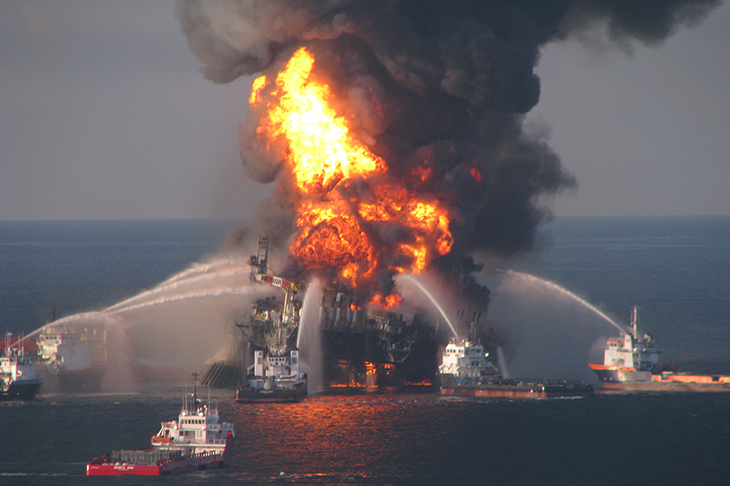BP oil spill a landmark case

The Deepwater Horizon oil rig explosion in 2010 kills 11 workers and spews millions of barrels of oil into the Gulf of Mexico. (Photo from the U.S. Coast Guard)
The BP oil spill trial will go down in history as “the most important case regarding pollution of the oceans,” said Ed Sherman, W.R. Irby Professor of Law at Tulane University.
In early September, Eastern District of Louisiana U.S. Court Judge Carl Barbier made his latest ruling in the complex case, finding BP oil company “grossly negligent” in the Deepwater Horizon oil rig explosion in 2010 in which 11 workers were killed and millions of barrels of oil spewed into the Gulf of Mexico.
“If BP had just been found 'negligent,' the penalties would have been potentially $4 billion.”—Law professor Ed Sherman
That finding of gross negligence means that BP is potentially liable for up to $18 billion in civil penalties under the Clean Water Act.
“If BP had just been found "negligent," the penalties would have been potentially $4 billion,” said Sherman, who is an authority on complex litigation.
The courts are setting precedent, he said, and sending the oil companies a message that they will be held responsible for pollution and injuries.
“The possibility of mistakes and accidents is greater, going a mile down to drill,” Sherman said.
The determination of the actual civil penalties to be paid to governments, cities, parishes and levee boards will be made by Barbier during another phase of the trial, which begins in January 2015.
Before that phase starts, Barbier is expected to rule on how many barrels of oil spilled, which determines the potential penalties.
A ruling made by Barbier in 2012 on settlement of damages to individuals and businesses under the Oil Pollution Act has already resulted in BP spending $28 billion on claims and cleanup costs, according to The New York Times.
With billions of dollars at stake, BP has repeatedly appealed to the 5th U.S. Circuit Court of Appeals to reverse Barbier"s rulings, but each time the higher court has upheld the lower court"s decisions, stating, “Deep water drilling is more dangerous and requires more care.”
